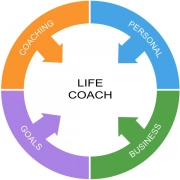Avoiding Fake Accredited Life Coach Training Programs
As the coaching industry continues to grow, so does the number of accredited life coach training programs. While these programs can provide valuable education and credentials, it’s important to be aware of fake accredited life coach training programs offering little value. This article will explore what to look for when choosing a legitimate life coach training program and how to avoid fake programs.
What are accredited life coach training programs?
Accreditation is the process of evaluating and certifying that a program meets established quality standards. Accreditation is important because it assures that the program meets recognized industry standards. Accredited life coach training programs have undergone a rigorous review process to ensure that they provide comprehensive and high-quality education.
There are several recognized accrediting organizations in the coaching industry, including the International Coach Federation (ICF), the Center for Credentialing and Education (CCE), and the International Association of Coaching (IAC). These organizations have established standards for life coach training programs and provide accreditation to programs that meet those standards. There are plenty of online accredited life coach training programs that you can look through on your catalog page, as well as other resources that are related to accredited life coach training programs.
Signs of fake accredited life coach training programs
Fake accredited life coach training programs often make unrealistic promises and lack recognized accreditation. Here are some signs to watch out for:
- Lack of recognized accreditation: Legitimate life coach training programs will have accreditation from a recognized accrediting organization. If a program claims to be accredited but not accredited by a recognized organization, it’s likely a fake program.
- The promise of a quick and easy certification process: Becoming a life coach takes time and effort. If a program promises a quick and easy certification process, it’s likely too good to be true.
- Unrealistic guarantees of success: No life coach training program can guarantee success. If a program promises unrealistic success rates or guarantees success, it’s likely a fake program.
- Lack of transparency in program details: Legitimate life coach training programs will provide detailed information about their curriculum, faculty, and accreditation. If a program lacks transparency in these details, it’s likely fake.
Consequences of enrolling in a fake accredited life coach training program
Enrolling in a fake accredited life coach training program can have serious consequences. Here are some potential consequences:
- Wasted time and money: Fake programs often require significant time and money but provide little to no value. Enrolling in a fake program can be a waste of both.
- Lack of credibility in the coaching industry: A fake program won’t provide the education and credentials necessary to establish credibility in the coaching industry.
- Potential legal issues: If a program misrepresents itself as accredited or makes false promises, it could be subject to legal action.
How to avoid fake accredited life coach training programs
To avoid fake accredited life coach training programs, it’s important to do your research. Here are some tips for choosing a legitimate program:
- Research potential programs thoroughly: Look for information about the program’s accreditation, curriculum, faculty, and reviews from past students.
- Check for recognized accreditation: Make sure the program has accreditation from a recognized accrediting organization, such as the ICF, CCE, or IAC.
- Look for transparency in program details: Legitimate programs will provide detailed information about their curriculum, faculty, and accreditation.
- Seek out reviews and feedback from past students: Look for reviews and feedback from past students to get a sense of the program’s quality and value.
- Trust your instincts: If something seems too good to be true or doesn’t feel right, it’s likely a red flag.
Conclusion
Choosing a legitimate life coach training program is crucial for establishing credibility and providing valuable education. Fake accredited life coach training programs can waste time and money and damage credibility in the coaching industry. By doing your research and looking for recognized accreditation and transparency in program details





